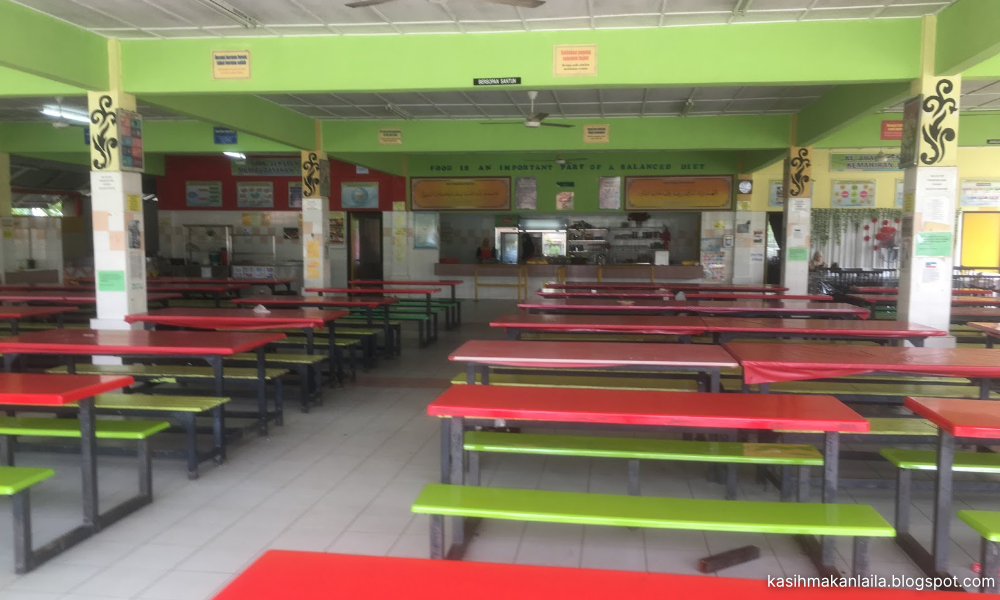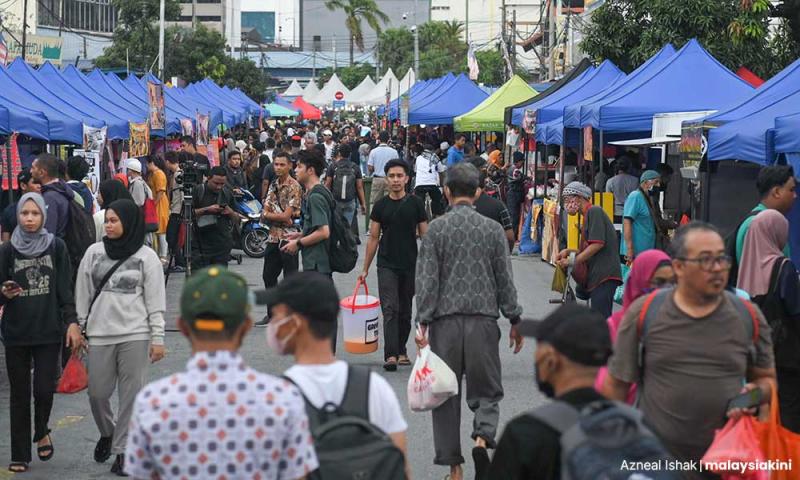Ramadan is supposed to teach Muslims about humility, patience, and spirituality, but the displays of excess, harassment and control by the Malaysian authorities, tell another story.
Instead of restraint and self-reflection, we are burdened with conservative politicians wanting to bully the public, both the Muslim and non-Muslim members of the rakyat.
The perennial problems of conservative Muslims criticising canteens which remain open for business and “non-Muslims failing to respect the right of Muslims to fast” will crop up without fail. Schools are the usual target. Are factory and workplace canteens free of the same scrutiny?
Outside of school, we have religious officers from the state religious authorities, patrolling the streets, checking the popular restaurants and fast-food outlets, to catch Muslims who are eating.
The third observation is the proliferation of expensive breaking-of-fast (iftar) meals at leading hotels and restaurants. Many Muslims tend to forget, that the breaking of fast, is not a time to gorge or to show off that one could afford a lavish buffet.
On March 12, PAS’ ulama wing leader Ahmad Yahaya criticised Education Minister Fadhlina Sidek for allowing school canteens to remain open during Ramadan.
Ahmad (above) disagreed with the move for canteens to continue operating as he felt it was more important for the ministry to focus on educating Muslim students about the importance of fasting and for non-Muslim students to respect the practice.
The PAS leader, who is also the MP for Pokok Sena, appears to be confused about the true meaning of Ramadan. Is he doubting the Muslim students' intention to fast? What makes him think that non-Muslim students do not respect those who fast?

Although he agreed that non-Muslim students could bring food and drinks to school for their own consumption, he wanted them to eat in a space specifically allocated for this purpose.
Purpose of canteens
So, has Ahmad forgotten that the school canteen serves this specific purpose? Where should students go to eat, drink and socialise in an amiable manner?
In previous years, some non-Muslim students had been forced to eat in the school toilets because the canteens were shut. This action undermines the true spirit of Islam and is an insult to both Malay and non-Malays.
Non-Muslims have not stopped Muslims from fasting nor have they shown disrespect towards Muslims who fast; but why bar them from eating in the school canteen? Isn’t that the purpose of canteens?
Ahmad accused Fadhlina of disrespecting Ramadan because she said canteens could remain open. He said this was an excessive move, a waste of time and had created an unnecessary polemic.
However, he has forgotten that Malaysia is a multicultural, multifaith nation and that the world does not revolve around Muslims who fast.
Muslims fast to empathise with the poor, who cannot afford three square meals a day. It is also to curb our excesses, and sexual desires. In other words, it is about self-control and discipline.

We are supposed to encourage clean thoughts and not be emotionally aggrieved or feel anger, which is what Ahmad has displayed.
Why does this PAS leader get worked up with a non-issue of the canteen being opened and non-Muslims eating during Ramadan?
Religion becomes state’s business
If Ahmad feels a strong urge to inspire change during Ramadan then he should urge Jakim and state religious bodies to try to catch Muslims eating, and selling food.
Religion should be a personal choice and its practice should be a private matter between the individual and God, but in Malaysia, it has become the state's business to ensure that a Muslim obeys the official doctrine.
Those who smoke in public will suffer the same punishment, of a fine and possible imprisonment, as those who eat in public.
The religious authorities are obsessed with controlling and manipulating people.
A Muslim who practises his faith will do the right thing. So why do the authorities feel the need to catch the Muslim eating? Why heap extra humiliation on him, by ridiculing him and questioning him in public, as has been done in previous years?
The level of mistrust against Muslims is also extended to those whose features look Malay. These non-Muslims have also found Ramadan to be a stressful time when religious police officers would harass them in public by making them prove they were not Malays, who should have been fasting.
Food waste
The onslaught of commercialism has ravaged Ramadan and the run-up to Hari Raya.
Look around us during Ramadan and see that food is sold to excess. Hotels and restaurants offer special breaking-of-fast meals at inflated prices.
The cost is a few hundred ringgits per adult. Children’s prices average around RM150. One evening’s iftar for a family of two adults and three children could feed a B40 family for a week.

Streets are congested by food stalls at the Ramadan bazaar, approach roads experience traffic jams and food outlets mushroom from nowhere and operate well into the early hours of the morning. There appears to be no shortage of people, both Muslims and non-Muslims plying these stalls.
The abundance of food and more importantly the corresponding food waste, the artificial barriers we create with those who are not fasting, and the act of harassing Muslims who do not fast, help to diminish the significance of fasting.
What happened to the true spirit of Ramadan? - Mkini
MARIAM MOKHTAR is a defender of the truth, the admiral-general of the Green Bean Army, and the president of the Perak Liberation Organisation (PLO). Blog, X.
The views expressed here are those of the author/contributor and do not necessarily represent the views of MMKtT.




No comments:
Post a Comment
Note: Only a member of this blog may post a comment.